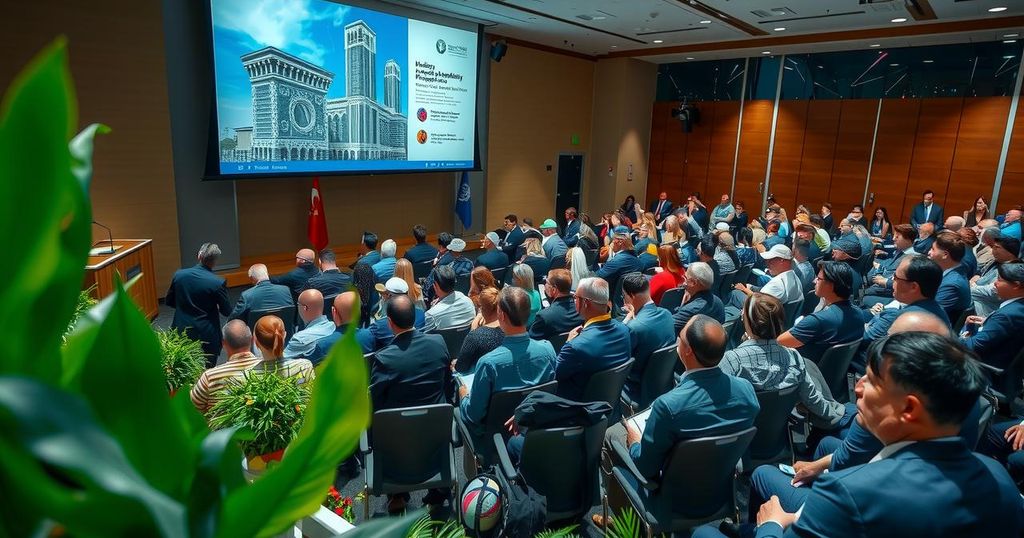Climate change
AF, AL GORE, ALDEN MEYER, ASIA, AZERBAIJAN, BAKU, BARACK OBAMA, BONN, BUSH, CLIMATE CHANGE, CLIMATE JUSTICE, COPENHAGEN, DENMARK, E3G, ENVIRONMENTAL POLICY, EUROPE, EUROPEAN UNION, GERMANY, GREENHOUSE GAS EMISSIONS, JAPAN, KYOTO, NETHERLANDS, OBAMA, PARIS AGREEMENT, THE HAGUE, UN
Fatima Khan
0 Comments
Challenges of Consensus in UN Climate Conferences: A Historical Perspective
UN climate negotiations continue to experience difficulties, with recent talks in Baku struggling to reach a consensus. Throughout history, numerous conferences have faced similar challenges, with notable failures at COP6 and COP15 highlighting the complexities of international climate diplomacy. Recent conferences have also struggled, exemplified by COP16’s inability to commit to necessary funding, indicating ongoing obstacles within these critical discussions.
Negotiators at the recent UN climate conference in Baku are grappling with the challenge of achieving consensus on key issues, a scenario reminiscent of past conferences where failure was prevalent. Since the inception of these annual summits in 1995, many have devolved into lengthy disputes, with COP6 in The Hague in 2000 marking a notable halt in discussions amid political uncertainties in the United States regarding climate leadership. While George W. Bush’s administration withdrew from the Kyoto Protocol, this setback paradoxically propelled future action in Bonn, highlighting the complex dynamics of international climate negotiations.
Several conferences, particularly COP15 in Copenhagen in 2009, have illustrated the perils of high expectations. The hope surrounding President Barack Obama’s election was crushed by the subsequent failure to reach a binding agreement, primarily due to strong resistance from China. The resulting Copenhagen Accord, while recognizing climate change concerns, fell short of establishing concrete emission reduction targets, ultimately leading to discontent among numerous participating nations. Furthermore, logistical issues hampered the proceedings in Copenhagen, further frustrating delegates.
More recently, the biodiversity conference COP16 in Colombia exited without a resolution regarding funding to halt environmental degradation, exemplifying the ongoing difficulties within such discussions. With the Colombian presidency unable to maintain the necessary attendance, the call for a return to negotiations in 2025 underscores the pressing need for effective consensus-building in environmental diplomacy.
The history of UN climate conferences is marked by numerous instances of failure and dissatisfaction, primarily due to a lack of agreement among member states. These conferences seek to address pressing issues surrounding global warming and environmental destruction, yet political tensions, logistical challenges, and differing priorities among countries often result in inconclusive outcomes. The balance of power in negotiations can significantly influence the effectiveness and momentum of efforts made during these summits, rendering them complex and precarious.
The ongoing struggles faced by negotiators at the UN climate conferences are emblematic of the broader challenges in achieving unified international action on climate change. Historical precedents, such as the failures observed in Copenhagen and the inability to secure agreements in biodiversity discussions, illustrate the pressing need for a more collaborative and productive framework. As climate issues intensify, the urgency for consensus among nations remains paramount.
Original Source: www.france24.com




Post Comment